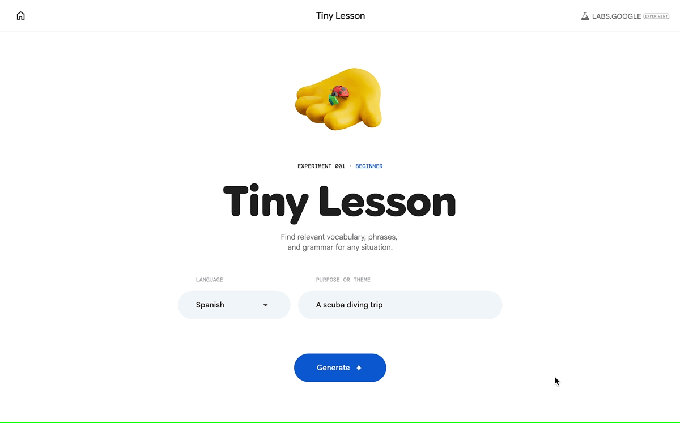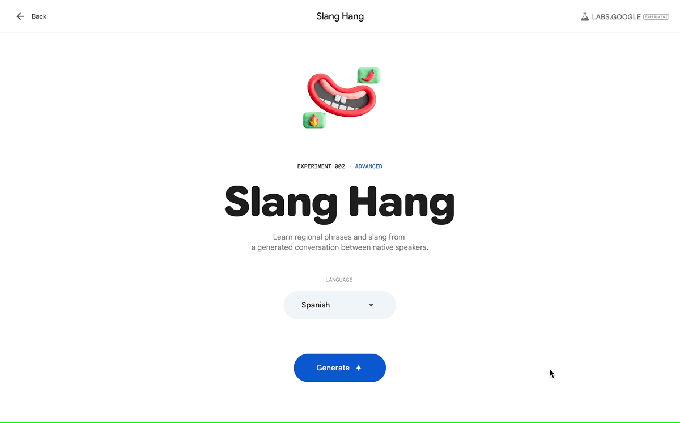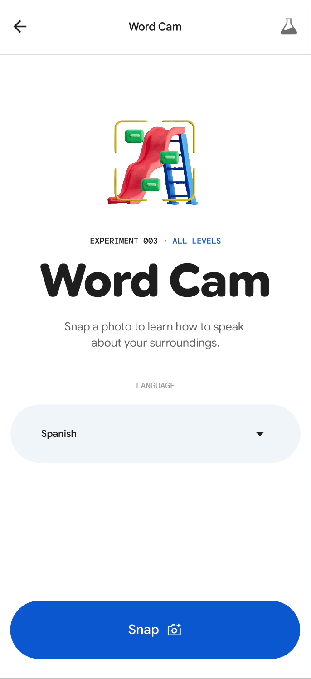Google has introduced three new AI-powered tools designed to make learning languages online feel more natural and conversational and they’re all free, all available on the web and all available in 18 languages. These experimental features from Labs are powered by Gemini, the company’s state-of-the art multimodal AI model.
1. Tiny Lesson – Learn What You Need, When You Need It
This feature helps them to quickly pick up real-life phrases used in real-life situations. For instance, if you are trying to find a lost passport, the tool will introduce words, grammatical tips and potential responses, including “I lost my passport” or “I want to report it to the police.”

2. Slang Hang – Speak Like a Local
Built to get you moving past textbook-style conversation, Slang Hang will teach you local slang and colloquial phrases. It replicates real-life conversations between native speakers so the learner has a more ‘real’ experience eg speaking to a street trader or a chat between friends. Users can also hover over unfamiliar terms to see what they mean, and where they’re coming from. But some of the slang may be incorrect, or made up, so you’ll want to double-check.

3. Word Cam – Learn from Your Environment
Point this app’s camera at everyday objects and it identifies and labels them with text in the language you’re learning. It also provides related vocabulary, so that you can increase your vocabulary accordingly. For example, you might spot a “window,” which could introduce you to terms like “blinds” or “curtains.”

Supported Languages
The AI tools currently provide support for the following languages:
- European languages: French, German, Italian, Spanish, Portuguese, Russian, Greek
- Asian languages: Hindi, Japanese, Korean, Chinese (including Hong Kong and Taiwan)
- Middle Eastern languages: Arabic, Hebrew, Turkish
- English variants: US, UK, Australia
- Others: Latin American Spanish, Brazilian Portuguese
Why It Matters
According to Google, these efforts are part of a push to enable language learning to be more personalized as well as more context-aware. With a focus on visual, conversational, and situational learning, Google’s goal is to change the way people learn and remember languages, particularly while on the move.
These are available now as part of Google Labs.


